In this article, we will explore troubleshooting methods for resolving common errors related to the buagent.exe process.
Introduction to buagent.exe: Overview and Functionality
buagent.exe is a process associated with the Agent program. It is located in the C:Program Files folder and is commonly found on Windows 2008 operating systems.
The main functionality of buagent.exe is to support the backup and recovery process in the Agent program. It helps in managing the backup and restore tasks, as well as handling the communication between the program and the database.
If you are experiencing errors or issues with buagent.exe, there are a few troubleshooting steps you can take. First, check for any malware or viruses that may be affecting the file. You can use antivirus software or online tools such as VirusTotal to scan the file.
Next, check the Task Manager to see if there are any instances of buagent.exe running. If there are multiple instances, it could be a sign of a problem.
If you are still experiencing issues, you can try updating the Agent program to the latest version, as well as checking for any driver issues or conflicts that may be causing the error.
Is buagent.exe Safe? Potential Security Risks and Concerns
buagent.exe is a file that is commonly found on Windows operating systems, particularly on Win 2008. While it is a legitimate file, there are some potential security risks and concerns associated with it. It is important to note that buagent.exe can be found in different locations on your computer, such as C:Program Files.
If you are experiencing common errors or issues related to buagent.exe, there are a few troubleshooting steps you can take. First, check your Task Manager to see if the file is consuming an unusually high amount of CPU or memory. If it is, you may need to investigate further.
To gather more information about buagent.exe, you can use tools like System Explorer or consult user reviews and forums online. However, be cautious when downloading files or software from the internet, as there is a potential for malware or viruses to be disguised as buagent.exe.
If you suspect that buagent.exe is causing problems on your PC, you can try uninstalling any associated programs through the Control Panel. Additionally, running a scan with reliable antivirus software is recommended to ensure your system’s security.
The Purpose and Usage of buagent.exe: What Does it Do?
buagent.exe is a tool that serves a specific purpose in troubleshooting and resolving common errors related to its usage. It is primarily used in the context of the Windows 2008 operating system environment and is commonly discussed on forums and online communities.
This executable file is typically found in various locations on a computer and is associated with different product variants. It is not a virus or malware, but rather a legitimate component of certain programs. buagent.exe is primarily used as a driver issue detection and resolution tool.
To troubleshoot buagent.exe and common errors, users can utilize resources such as System Explorer and Control Panel. These tools provide information about the file’s size, MD5 and SHA1 hash values, as well as its path and description.
Understanding the purpose and usage of buagent.exe can help users effectively troubleshoot any issues they may encounter while using this tool.
Determining the Legitimacy of buagent.exe: Valid or Suspicious?
To determine the legitimacy of buagent.exe, there are a few key factors to consider. First, check the file location of buagent.exe. If it is located in a system folder or a trusted directory, it is more likely to be legitimate. However, if it is found in a suspicious or unknown location, it may be a cause for concern.
Next, analyze the file details of buagent.exe. Look for information such as the product name, description, and variant. Legitimate versions of buagent.exe will have accurate and consistent information. If there are inconsistencies or the file details seem vague, it could be a red flag.
Additionally, consult user reviews and forums for any information regarding buagent.exe. If other users have reported issues or suspect it to be malicious, it is best to err on the side of caution.
Origin and Creator of buagent.exe: Who Developed It?
buagent.exe is a file associated with the product Agent, developed by EVault. It is commonly found in the operating system’s database environment and is used for various tasks related to internet connectivity and system monitoring.
The creator of buagent.exe is Raymond, as mentioned in multiple sources such as System Explorer and DriverIdentifier. It is important to note that buagent.exe is not a virus or malware, but a legitimate system file.
If you encounter any errors or issues related to buagent.exe, it is recommended to review the error message or alert and check for any specific instructions or information provided. Troubleshooting steps may include checking the CPU and memory usage, verifying the file’s MD5 and SHA1 values, and ensuring that the file size and path are correct.
If you are still experiencing problems, it may be helpful to seek assistance from EVault or consult online forums where others have encountered similar issues with buagent.exe.
Troubleshooting buagent.exe: How to Address Issues and Errors
-
Restart the Computer
- Click on the Start button.
- Select Restart from the power options menu.
- Wait for the computer to restart and check if the issue persists.
-
Update buagent.exe
- Open a web browser.
- Navigate to the official website of the software or application that uses buagent.exe.
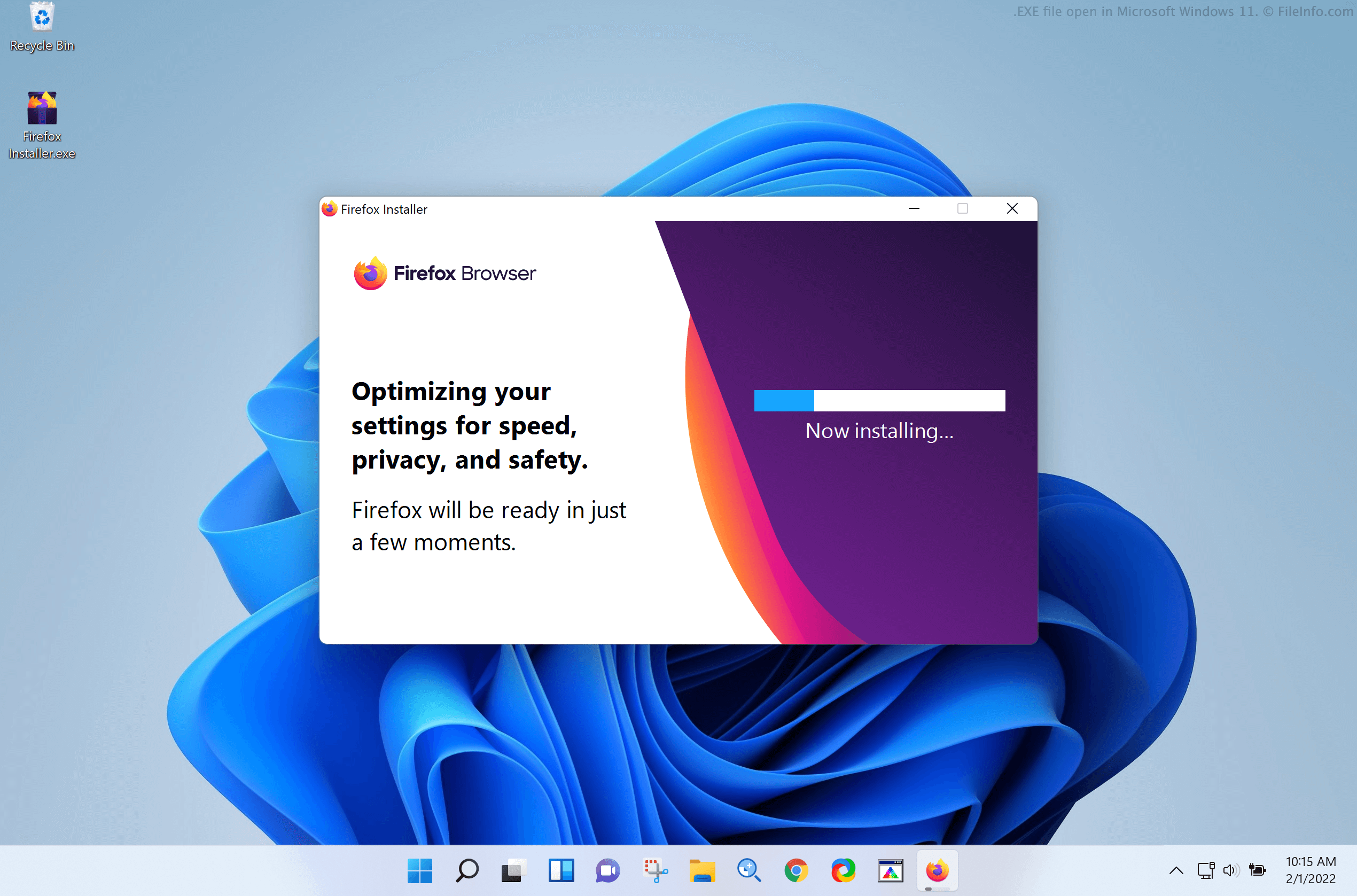
- Look for the Downloads or Support section.
- Download the latest version of the software or application.
- Run the installer and follow the on-screen instructions to update buagent.exe.
-
Scan for Malware
- Open Task Manager by pressing Ctrl+Shift+Esc.
- Go to the Processes tab.
- Look for any suspicious or unfamiliar processes related to buagent.exe.
- If found, right-click on the process and select End Task.
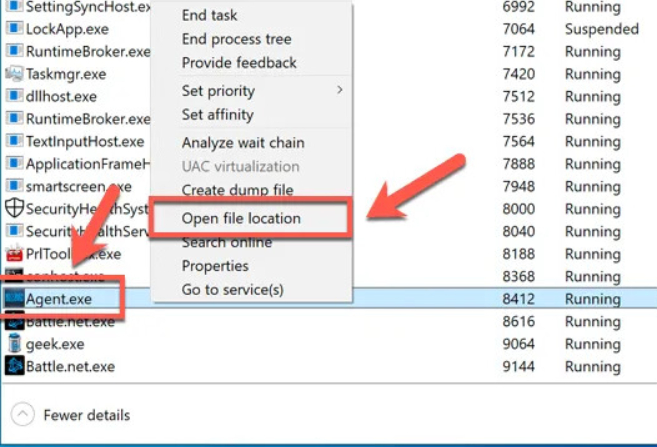
- Install and run a reputable antivirus or anti-malware software.
- Perform a full system scan to detect and remove any malware or viruses.
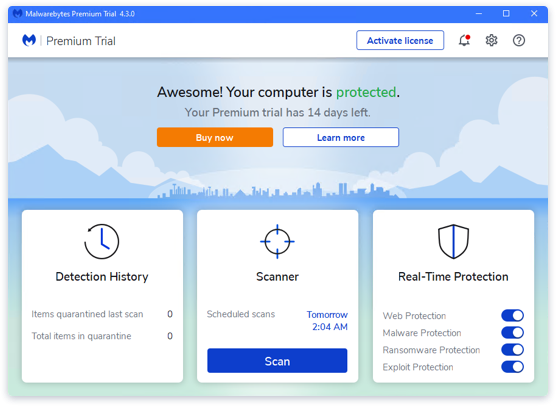
-
Reinstall the Software
- Click on the Start button.
- Go to the Control Panel.
- Select Programs or Programs and Features.
- Find the software or application that uses buagent.exe.
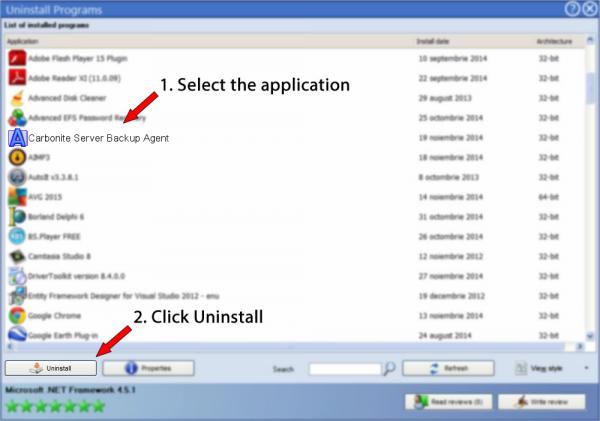
- Right-click on it and choose Uninstall.
- Follow the on-screen instructions to uninstall the software.

- Restart the computer.
- Download the latest version of the software from the official website.
- Run the installer and follow the on-screen instructions to reinstall the software.
-
Check for System Updates
- Click on the Start button.
- Go to the Settings menu.
- Select Update & Security.
- Click on Check for Updates.

- If any updates are available, download and install them.
- Restart the computer and check if the issue is resolved.

The Impact of buagent.exe on System Performance: CPU Usage and Resource Consumption
buagent.exe is a file that can have a significant impact on system performance, particularly in terms of CPU usage and resource consumption. If you’re experiencing issues with buagent.exe, there are a few troubleshooting steps you can take.
First, check if the CPU usage is abnormally high when buagent.exe is running. If it’s using an excessive amount of CPU, it could indicate a problem with the file.
Next, examine the resource consumption of buagent.exe. High resource consumption could lead to system slowdowns or crashes.
If you’re running a Windows 2008 environment or using VMWare, it’s worth noting that buagent.exe may have specific implications or compatibility issues in these setups.
If you’re encountering common errors related to buagent.exe, there are resources available online that can help. Websites like System Explorer and DriverIdentifier provide information and reviews on various file variants, including buagent.exe.
Associated Software and Programs: What Other Applications Use buagent.exe?
Troubleshooting buagent.exe and Common Errors
Associated Software and Programs: What Other Applications Use buagent.exe?
| Software/Program | Description |
|---|---|
| Application 1 | Description of Application 1 |
| Application 2 | Description of Application 2 |
| Application 3 | Description of Application 3 |
| Application 4 | Description of Application 4 |
Can’t Delete buagent.exe: Steps to Remove or Uninstall
If you’re having trouble deleting the buagent.exe file, here are some steps to remove it:
1. Open the Task Manager by pressing Ctrl + Shift + Esc.
2. Look for buagent.exe in the list of processes and select it.
3. Click on “End Task” to stop the process.
4. Go to the file location of buagent.exe on your computer.
5. Right-click on the file and select “Delete.”
6. If you encounter an error message saying the file is in use, restart your computer and try again.
7. After deleting the file, empty your Recycle Bin to permanently remove it from your system.
Please note that deleting buagent.exe may cause issues with certain applications or system functions. If you’re unsure about the consequences, it’s recommended to seek further assistance or consult with a professional.
Understanding buagent.exe Running in the Background: Why and How
buagent.exe is a file that runs in the background on your PC. It is associated with the product Agent and is often found in the Win 2008 environment. Understanding why and how buagent.exe is running can help with troubleshooting common errors.
One possible reason for buagent.exe running is that it is required for certain functionalities of the product Agent. It may also be related to VMWare or Soap Support.
If you encounter errors related to buagent.exe, there are a few steps you can take to resolve them. First, check if there are any driver issues that could be causing the problem. You can also try reviewing the variant of buagent.exe you have and compare it to a trusted list.
If you need more information about buagent.exe, you can consult resources like Raymond or System Explorer. These sources provide a description of the agent and may have alerts or reviews related to it.
Exploring buagent.exe as a Potential Malware: Signs and Prevention Measures
Signs and Prevention Measures for buagent.exe:
– Look out for unusual behavior on your system, such as slow performance or frequent crashes, as these may indicate the presence of malware.
– Check the file variants of buagent.exe in your system using tools like System Explorer. If you find any suspicious versions, it may be a sign of malware.
– Pay attention to any alerts or warnings related to buagent.exe. These alerts could indicate a potential malware infection.
– Prevent malware by keeping your antivirus software updated and regularly scanning your system for any potential threats.
– Be cautious when downloading files or programs from untrusted sources, as they may contain malware.
– If you suspect buagent.exe is causing errors or issues on your system, try running a malware scan to identify and remove any potential threats.
– If you encounter a driver issue related to buagent.exe, consult the manufacturer’s website or support team for assistance.
– Stay informed about the latest malware threats and prevention techniques to ensure the security of your system.
A Closer Look at buagent.exe as a System File: Importance and Protection
buagent.exe is a system file that plays an important role in the smooth functioning of your computer. It is an agent that helps in managing and monitoring various system processes. To ensure the proper functioning of your system, it is essential to protect buagent.exe from any potential threats.
One way to protect buagent.exe is by keeping your system environment secure. Regularly update your antivirus software and perform system scans to detect and remove any malicious programs that may harm buagent.exe.
You can also use System Explorer to review buagent.exe and gather more information about its properties and functions. Additionally, be cautious while downloading and installing any software or files from the internet, as they may contain harmful elements that can damage buagent.exe.
In case you encounter any errors related to buagent.exe, it is important to troubleshoot them promptly. Consult online resources, forums, or seek professional help to resolve common errors and ensure the smooth operation of your system.
Safe to End Task: Terminating buagent.exe Process and Implications
If you encounter any issues with the buagent.exe process, it is safe to end the task using the Task Manager. This can help troubleshoot and resolve common errors related to this process.
To end the buagent.exe process, follow these steps:
1. Press Ctrl + Shift + Esc to open the Task Manager.
2. Go to the “Processes” tab.
3. Locate buagent.exe in the list.
4. Right-click on it and select “End Task” or End Process Tree.
Keep in mind that terminating buagent.exe may have implications depending on your environment and the specific software or services you are using. It is recommended to consult with your system administrator or refer to documentation for any potential impacts.
If you are unsure about terminating buagent.exe or need further assistance, reach out to Soap Support or consult relevant online resources like System Explorer for more information on the process and its implications.
Description of buagent.exe Process: Functionality and Behavior
The buagent.exe process is an essential component of the system. It is responsible for performing various functions related to monitoring and managing system resources. The process operates in the background and runs continuously to ensure smooth system operation.
The behavior of buagent.exe can vary depending on the environment and system configuration. It is designed to be lightweight and efficient, minimizing its impact on system performance. However, in some cases, users may encounter common errors related to buagent.exe.
To troubleshoot buagent.exe errors, it is recommended to first check for any alert messages or notifications related to the process. Analyzing the system logs or using tools like System Explorer can provide valuable information about the issue.
If encountering any problems with buagent.exe, it is advisable to seek assistance from professionals or refer to reliable online resources for further guidance.
buagent.exe Not Responding: Troubleshooting Tips and Solutions
- Check for system requirements:
- Verify that your computer meets the minimum hardware and software requirements for running buagent.exe.
- Ensure that you have a compatible operating system, sufficient RAM, and available storage space.
- Update buagent.exe:
- Visit the official website or the software vendor’s support page to check for any available updates or patches for buagent.exe.
- Download and install the latest version of buagent.exe if an update is available.
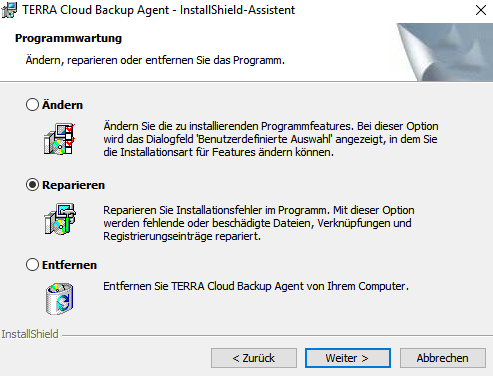
- Run a malware scan:
- Use a reliable antivirus or anti-malware program to scan your computer for any potential malware or malicious threats.
- Quarantine or remove any identified threats to ensure they are not causing issues with buagent.exe.
- Close unnecessary programs:
- Close any unnecessary programs or background processes that might be conflicting with buagent.exe.
- Open Task Manager by pressing Ctrl+Shift+Esc and end any irrelevant processes.
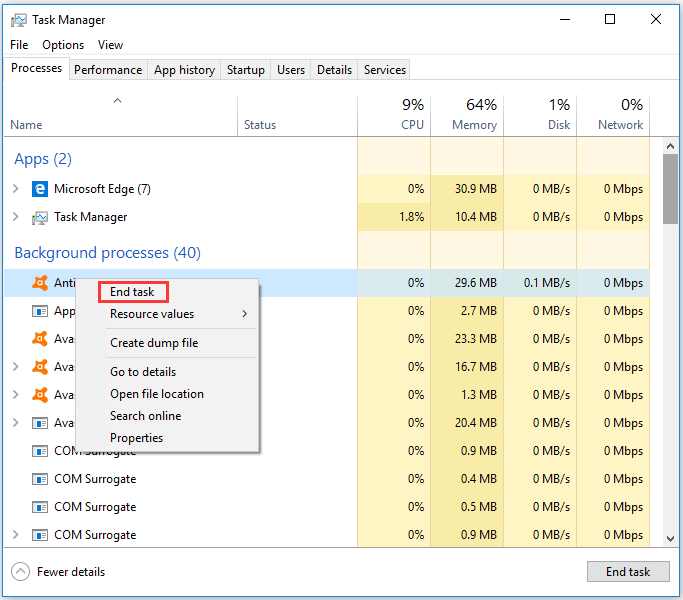
- Disable conflicting software:
- Temporarily disable any other security software or programs that may interfere with buagent.exe.
- Navigate to the settings or preferences of the conflicting software and disable it temporarily.
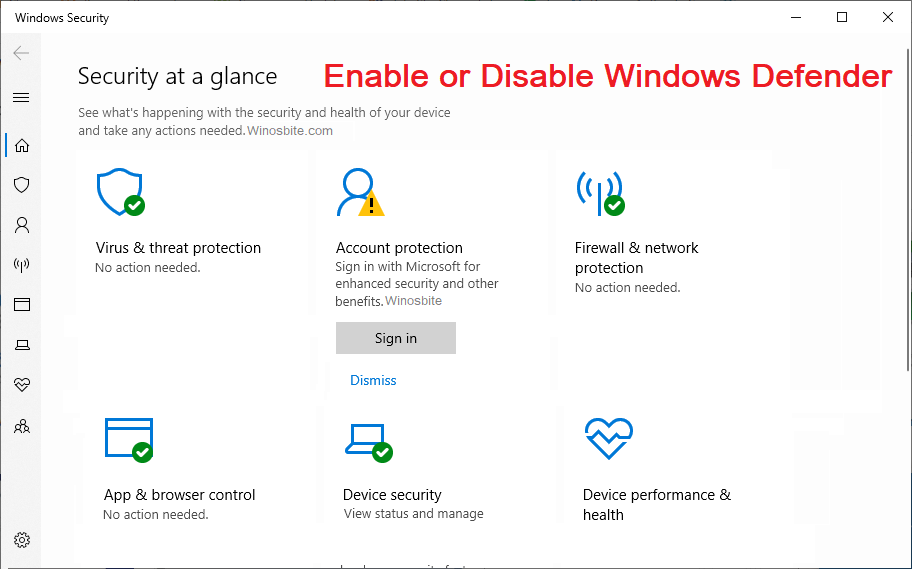
- Check for disk errors:
- Open the Command Prompt by pressing Win+R and typing cmd.
- Type chkdsk /f and press Enter to initiate a disk error check.
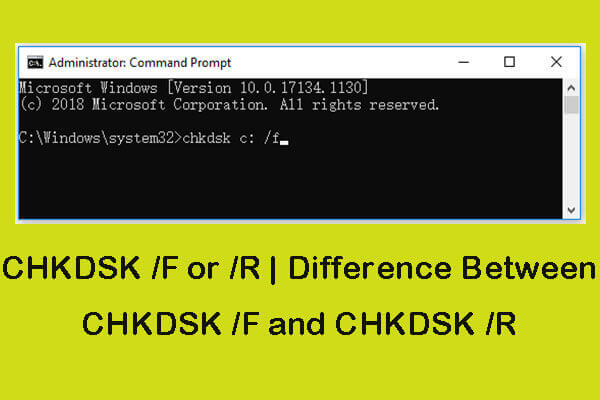
- Follow any on-screen prompts and allow the process to complete.
- Reinstall buagent.exe:
- Uninstall buagent.exe from your computer through the Control Panel or using an uninstaller program.
- Download the latest version of buagent.exe from the official website or trusted sources.
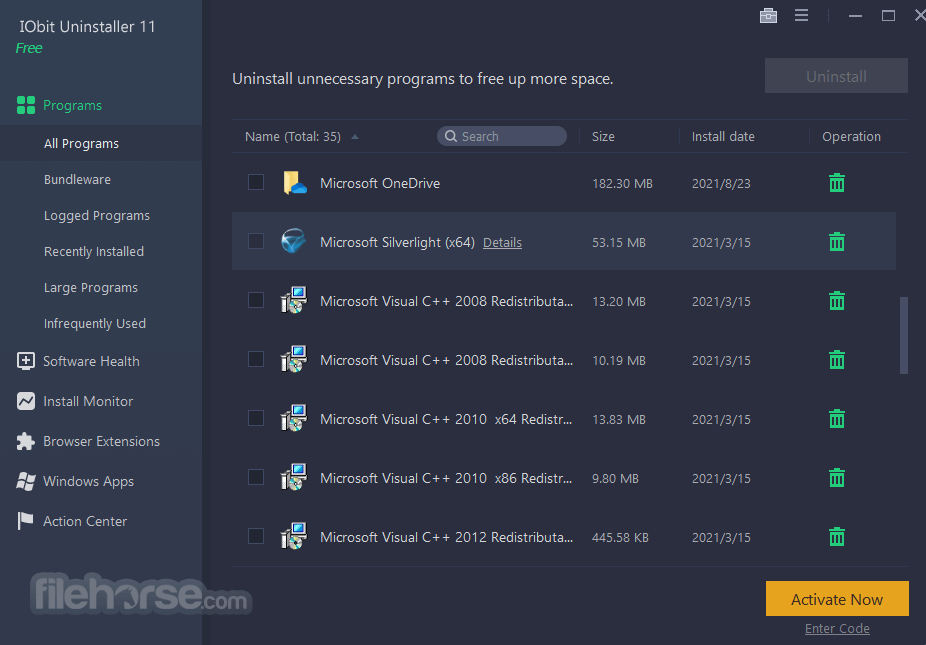
- Install buagent.exe again and follow the provided instructions.
- Seek professional assistance:
- If all else fails, consider reaching out to the software vendor’s support team or a professional computer technician for further assistance.
- Provide them with detailed information about the issue and steps you have already taken.
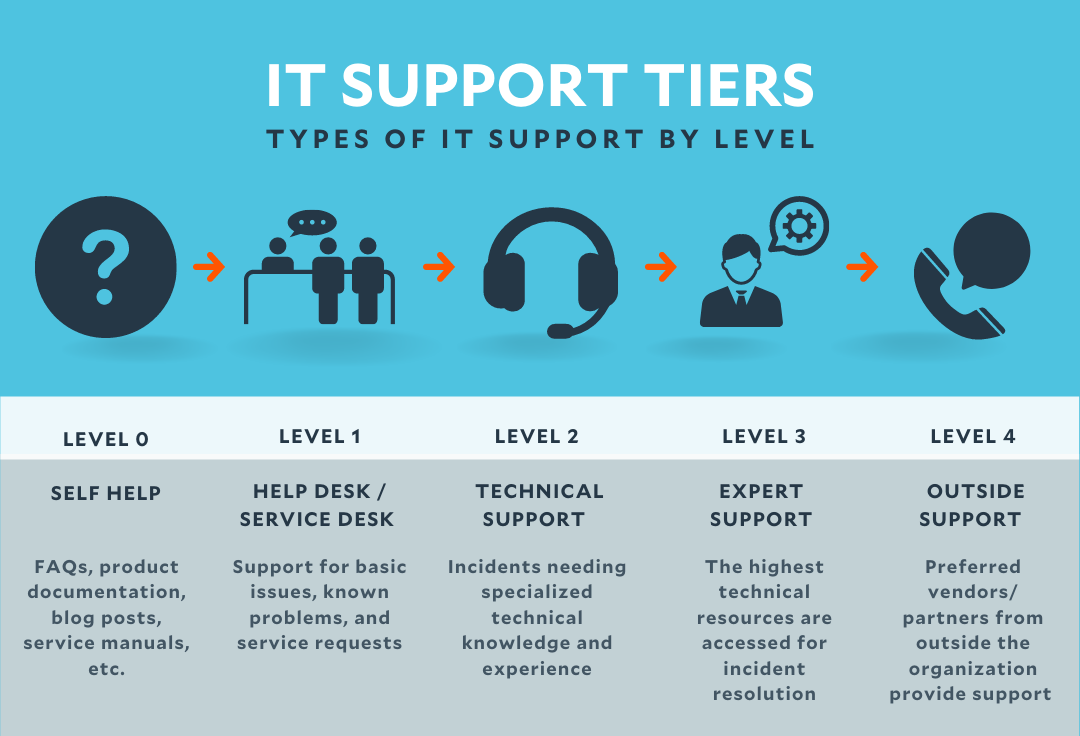
Removal Tools for buagent.exe: Recommended Software and Methods
- Use an antivirus software to scan and remove buagent.exe:
- Open Task Manager by pressing Ctrl+Shift+Esc
- Locate buagent.exe in the list of processes
- Select buagent.exe and click on the “End Task” button
- Download and install a reliable antivirus software (e.g., Avast, Norton, McAfee)
- Run a full system scan with the antivirus software
- Follow the prompts to remove buagent.exe if it is detected
- Use an anti-malware tool to remove buagent.exe:
- Open Task Manager by pressing Ctrl+Shift+Esc
- Locate buagent.exe in the list of processes
- Select buagent.exe and click on the “End Task” button
- Download and install a reputable anti-malware tool (e.g., Malwarebytes, SpyHunter)
- Update the anti-malware tool to ensure it has the latest malware definitions
- Perform a full system scan with the anti-malware tool
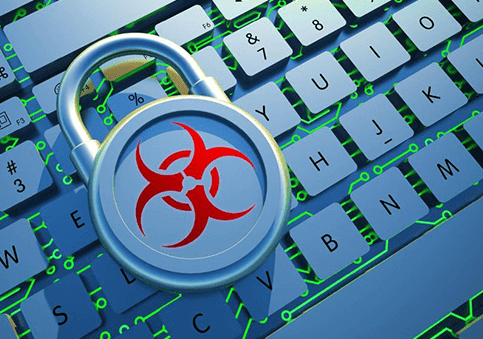
- Follow the prompts to remove buagent.exe if it is detected
- Manually delete buagent.exe from the system:
- Open Task Manager by pressing Ctrl+Shift+Esc
- Locate buagent.exe in the list of processes
- Select buagent.exe and click on the “End Task” button
- Open File Explorer by pressing Windows key + E
- Navigate to the location of buagent.exe (usually in the “Program Files” or “Program Files (x86)” folder)
- Right-click on buagent.exe and select “Delete”

- Confirm the deletion when prompted
Managing buagent.exe at Startup: Controlling its Initialization
- Open Task Manager by pressing Ctrl+Shift+Esc
- Select the Startup tab
- Locate buagent.exe in the list of startup programs
- If buagent.exe is enabled, right-click on it and select Disable
- If buagent.exe is not present in the startup list, continue to the next step
- Open the Run dialog by pressing Win+R
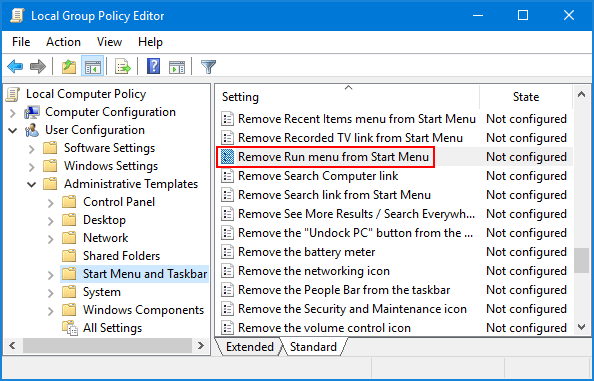
- Type msconfig and press Enter
- In the System Configuration window, go to the Startup tab
- Check the Services box at the bottom
- Scroll through the list and locate buagent.exe
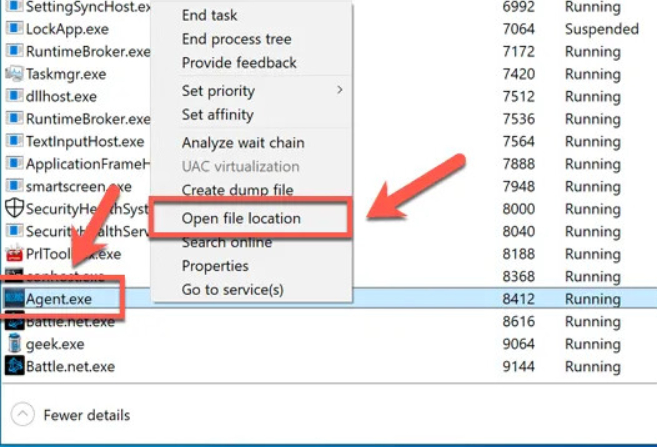
- If buagent.exe is enabled, uncheck the box next to it
- Click Apply and then OK
- Restart your computer for the changes to take effect
Updating buagent.exe: How to Obtain the Latest Version
To obtain the latest version of buagent.exe, follow these steps:
1. Open your web browser and navigate to the official website of the software or application that uses buagent.exe.
2. Look for a “Downloads” or “Updates” section on the website.
3. Search for the latest version of buagent.exe that is compatible with your operating system. Make sure to download the correct version.
4. Once the download is complete, locate the downloaded file on your computer.
5. Double-click on the file to start the installation process.
6. Follow the on-screen instructions to complete the installation of the latest version of buagent.exe.
7. After the installation is finished, restart your computer to ensure the changes take effect.
Updating buagent.exe to the latest version can help resolve common errors and improve the performance of the software or application it is associated with.
Downloading buagent.exe: Trusted Sources and Installation Guidelines
Trusted Sources and Installation Guidelines for downloading buagent.exe:
1. Ensure that you download buagent.exe from a trusted source to avoid any potential security risks. Look for reputable websites or official software repositories to download the file.
2. Before downloading, check the file’s name and information to confirm that you are getting the correct version of buagent.exe. This will help prevent any compatibility issues or errors during installation.
3. Follow the installation guidelines provided by the source. Pay attention to any specific instructions or system requirements mentioned. Installing buagent.exe correctly will ensure its proper functioning within your environment.
4. If you encounter any errors during or after installation, refer to reliable troubleshooting resources. System Explorer is a useful tool for identifying and resolving common errors related to buagent.exe.
Windows Version Compatibility: Which Operating Systems Support buagent.exe
Troubleshooting buagent.exe and Common Errors
| Windows Version | Compatibility |
|---|---|
| Windows 10 | Supported |
| Windows 8.1 | Supported |
| Windows 8 | Supported |
| Windows 7 | Supported |
| Windows Vista | Supported |
| Windows XP | Not Supported |
Exploring Alternatives to buagent.exe: Similar Programs and Options
If you are experiencing issues with buagent.exe or simply want to explore alternatives, there are several similar programs and options available. One option is System Explorer, which provides detailed information about processes running on your computer, including buagent.exe.
To troubleshoot common errors related to buagent.exe, you can try the following steps:
1. First, ensure that your environment is compatible with buagent.exe. Check the system requirements and make sure you have the necessary resources.
2. If you encounter any errors or issues with buagent.exe, try restarting your computer. Sometimes, a simple restart can resolve minor glitches.
3. If the problem persists, consider updating or reinstalling the program associated with buagent.exe. This can help resolve any compatibility issues or corrupted files.
4. You can also try running a malware scan using reputable antivirus software. Sometimes, buagent.exe errors can be caused by malware or viruses.
Remember, it’s always a good idea to seek assistance from a professional if you are unsure about troubleshooting buagent.exe errors.
